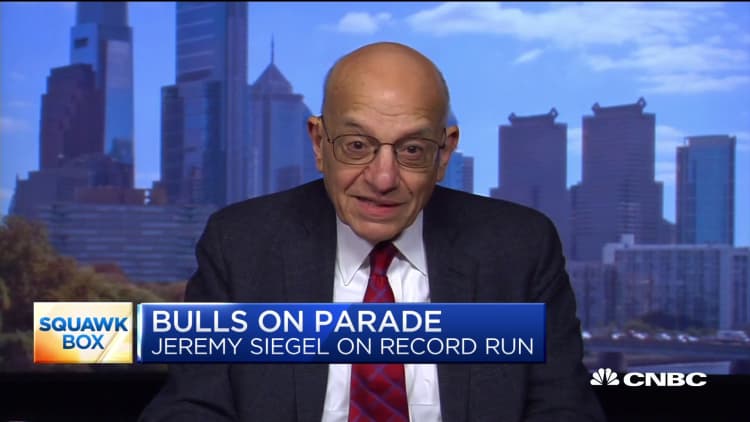
Wharton School professor Jeremy Siegel on Tuesday attributed the favorable views toward socialism in the U.S. to the country's higher education system.
"It's also a matter of definition and understanding and really faulty understandings of history," Siegel said on CNBC's "Squawk Box." "The kids are not learning history of socialism and what's been tried and failed, and I think that's a major, a major problem."
Siegel's comments came in response to a question from CNBC's Joe Kernen, who cited a recent poll that showed significant receptiveness toward socialist candidates among young people.
In October, a poll released jointly by YouGov/Victims of Communism Memorial Foundation found 70% of millennials would vote for a socialist. The margin of error was +/- 2.4%. YouGov, an online firm, is rated as a B- pollster by data journalism publication FiveThirtyEight.
Polling last year from Gallup, which has a B grade from FiveThirtyEight, showed people ages 18-29 do not have a more positive view of socialism in 2018 compared with 2010. In both years, 51% of respondents said they viewed socialism positively.
What did change was attitudes toward capitalism. In 2018, 45% of people ages 18-29 said they held positive views of it, compared with 68% in 2010. The 2018 poll had a margin of error of +/- 3%.
The increasing conversation about younger Americans' embrace of socialism is fueled, in part, by the surprisingly competitive bid Sen. Bernie Sanders, I-Vt., made for the Democratic Party's 2016 presidential nomination.
While the self-described democratic socialist did not win, he secured around 43% of the votes, compared with former Secretary of State Hillary Clinton's 55%. Sanders received a large share of the youth vote.
And as the 2020 Democratic primary unfolds, two of the most liberal candidates, Sanders and Sen. Elizabeth Warren, D-Mass., have emerged as two of the most well-supported candidates.
In the Real Clear Politics national polling average, Warren, who describes herself as a capitalist, garners 20.3% support, while Sanders receives 18.8%. They both trail the more moderate Joe Biden, former U.S. vice president.
The longtime stock bull, asked whether he would remain as optimistic about the market if either Sanders or Warren were elected president and some of their economic proposals became law, offered a nuanced answer.
"Basically, the free market system is what's generated our wealth over time," Siegel said, noting that he felt bullish about the U.S. when the first edition of his popular book, "Stocks for the Long Run," was published in 1994 and "I still do."
That is due, in part, to his belief that the U.S. Senate will remain in Republican control. Siegel said it would be difficult for some of the two candidates' proposals, such as Medicare for All and a wealth tax, to be passed into law.
"Basically, you have a standoff, gridlock, which of course a lot of people think is not that terrible for the stock market," Siegel said, arguing that Americans also prefer a more moderate candidate.



